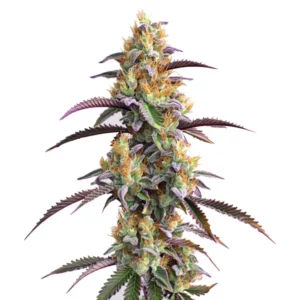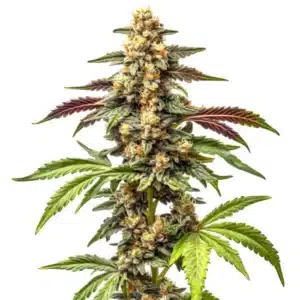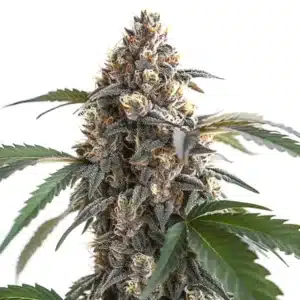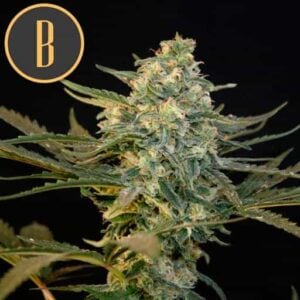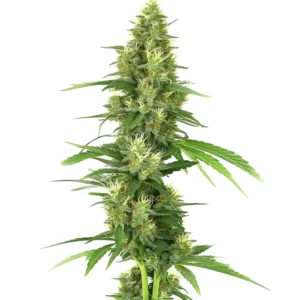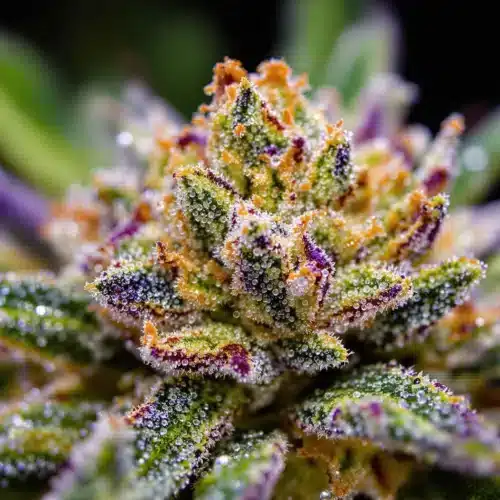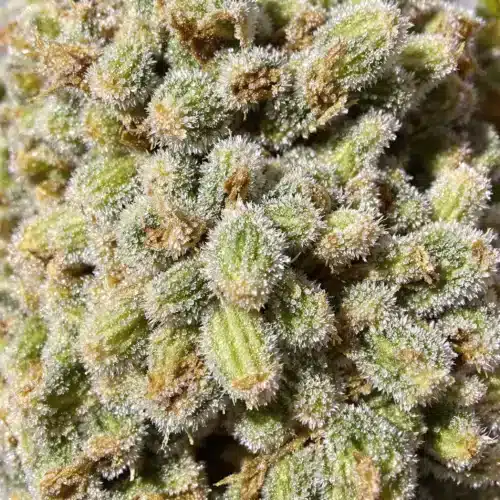What is Humulene Terpene?
Humulene terpene is part of the sesquiterpene class, molecules known for their anti-inflammatory and anti-cancer properties. It is primarily identified through its woody, earthy fragrance that is quite soothing, often associated with the great outdoors and lush forests. In the plant world, humulene plays a critical role in deterring pests and pathogens, showcasing its importance beyond just sensory appeal.
The presence of humulene in various plants, particularly hops and cannabis, has been studied for its potential health implications. These studies are promising, indicating that humulene can have significant therapeutic effects, especially when used in conjunction with other terpenes and cannabinoids to leverage the entourage effect in cannabis-based treatments.
Recent advancements in terpene research have highlighted humulene’s potential role in reducing the reliance on synthetic drugs, especially for managing chronic conditions. This has sparked interest in its integration into holistic health practices.
Educational initiatives are now emerging to inform consumers and medical professionals about the benefits of terpenes like humulene, increasing awareness and acceptance of its uses in therapy and healthcare.
Promos & Deals
Humulene’s unique profile
Unlike many terpenes, humulene is unique in its ability to suppress appetite, which sets it apart as a potential aid in weight management programs. This characteristic is rare among terpenes that usually are not involved in influencing metabolic processes directly.
Besides to its impact on appetite, humulene is also known for its robust anti-inflammatory capabilities, making it an excellent choice for formulations that aim to relieve swelling and pain. Its multifaceted nature extends its utility to both dietary and therapeutic applications, underscoring its significance in scientific research.
Emerging research suggests that humulene may also have a role in fostering healthier lipid profiles in individuals. Early studies indicate that its use could potentially lower bad cholesterol levels and improve overall cardiovascular health.
Furthermore, the environmental sustainability of sourcing humulene-rich plants adds another layer of appeal to this terpene. As industries lean towards more eco-friendly practices, the cultivation of such plants could contribute significantly to greener production methods.
What Does Humulene Smell/Taste Like?
The scent and flavor profile of humulene are marked by subtle earthy and woody notes, with a slight spice that enhances its complexity. This terpene is less overtly fragrant compared to others, making it a favored ingredient in perfumes and aromatic blends where a mild, soothing presence is desired.
In terms of taste, humulene adds a layer of depth to the flavors it accompanies, often perceived in the background of the taste profile, adding richness without overwhelming other flavors. This quality makes it particularly valuable in the craft brewing industry, where it contributes to the nuanced flavors of many beers.
Culinary experts also appreciate humulene for its ability to enhance savory dishes without altering their inherent tastes. Its integration into culinary practices speaks to its versatility and the subtle, yet significant impact it can have on food enhancement.
The aromatherapeutic benefits of humulene are also being explored, with many users reporting a sense of calm and relaxation when exposed to its aroma. This has opened new avenues for its use in stress relief and mental wellness products.

Effects and Benefits of Humulene
Humulene Terpene Effects
Humulene plays a significant role in the anti-inflammatory and analgesic properties of plants. When exploring a humulene effects, it’s clear that its ability to reduce inflammation can be particularly beneficial for conditions like arthritis and fibromyalgia.
Additionally, the anti-cancer properties of humulene are being explored with promising early results, indicating its potential in oncological research and therapy. This points to a future where humulene could play a critical role in the development of new, more natural cancer treatments.
Its effectiveness in suppressing tumor growth has been observed in various pre-clinical trials, suggesting that humulene might be used to complement traditional cancer treatments or possibly as an alternative therapy in the future.
Humulene also exhibits significant anti-fungal properties, making it a valuable component in treatments targeting fungal infections. This expands its utility beyond mere pain relief and into broader antimicrobial applications.
Humulene Benefits
Humulene’s antibacterial properties make it an excellent candidate for natural preservative uses in food and cosmetics. Its efficacy against bacteria can help extend the shelf life of products while reducing the need for synthetic preservatives.
Moreover, its therapeutic properties are being utilized in aromatherapy and holistic medicine to promote general well-being and reduce stress. The subtle, calming effects of humulene-rich products can significantly enhance mood and relaxation, making it a popular choice in the wellness industry.
Recent studies have linked humulene to respiratory health benefits, showing that it can help alleviate symptoms of bronchitis and asthma by reducing inflammation in the respiratory tract.
The compound’s ability to aid in weight management has been noted as well, providing a natural option for those looking to control their appetite and manage their weight without the side effects associated with chemical-based appetite suppressants.
The health benefits and effects of humulene
Extensive research into humulene’s potential to treat allergic inflammation and bronchitis shows promising results, which could make it a key component in future respiratory therapies. Its role in reducing inflammation and modulating allergic reactions highlights its potential as a multi-purpose therapeutic agent.
Studies have also noted humulene’s efficacy in pain management, where it helps to mitigate pain without the psychoactive effects associated with traditional pain medication. This non-sedative pain relief is particularly beneficial for patients who require pain management without cognitive impairment.
Additionally, humulene has shown to have a positive effect on the immune system by modulating immune response and potentially reducing the risk of autoimmune diseases.
Its natural antioxidant properties further contribute to its health benefits, protecting cells from oxidative stress and potentially reducing the risk of chronic diseases like heart disease and diabetes.
Humulene Terpene Uses
Humulene is not only a staple in herbal therapies but also increasingly common in skincare products due to its soothing properties. Its incorporation into topical treatments for skin inflammation and irritation demonstrates its gentle yet effective action.
In culinary uses, humulene is explored for its potential to enrich flavors without adding calories. This aspect is particularly appealing in the creation of healthy, flavorful food products that cater to a growing consumer base focused on dietary wellness.
The versatility of humulene is further demonstrated in its use in natural insect repellents, where its strong aromatic properties are employed to deter pests without harmful chemicals.
Humulene’s role in plant-based therapies extends to traditional Chinese medicine, where it has been used for centuries to treat a variety of ailments due to its anti-inflammatory and pain-relieving properties.

What Makes Humulene Special
Humulene’s dual functionality as both a flavor enhancer and a therapeutic agent makes it a uniquely valuable terpene in various industries. Its ability to interact beneficially with other compounds in cannabis, known as the entourage effect, further amplifies its efficacy and makes it a critical component in full-spectrum cannabis products.
The environmental impact of cultivating humulene-rich plants is also significant, as these plants can contribute to sustainable agricultural practices. By gaining deeper insights into humulene and its benefits, industries can make more environmentally and socially responsible choices.
This terpene’s ability to provide therapeutic effects without altering mental state makes it particularly appealing for medical use where patients seek relief without psychoactive impacts.
Humulene’s contributions to sustainable agriculture and green chemistry underscore its potential beyond the pharmaceutical and cosmetic industries, suggesting a role in environmental conservation efforts.
Cannabis strains containing humulene
Cafe Racer Autoflower Strain
Cafe Racer’s robust humulene profile not only contributes to its distinctive aroma but also to its therapeutic potential, particularly in stress relief and mood enhancement. This makes it a favorite among users seeking both recreational and medicinal benefits.
This strain is also noted for its vigorous growth and resilience, making it suitable for a variety of growing conditions and appealing to cultivators looking for dependable yields.
Berry Zkittlez Strain
Rich in humulene, Berry Zkittlez combines sweet and earthy notes, providing a calming effect along with anti-inflammatory benefits. This strain is often chosen by those looking to reduce physical discomfort while enjoying a flavorful smoking experience.
Berry Zkittlez has gained popularity for its balanced effects that cater to both novice and experienced cannabis users, making it a versatile choice to cultivators.
Zookies Strain
Zookies is another strain that features a noticeable amount of humulene, known for its balanced aroma of earthiness and sweet notes, often chosen for its relaxing effects and potential to alleviate pain.
The complex terpene profile of Zookies not only enhances its therapeutic properties but also contributes to a rich, multifaceted smoking experience, which is highly valued among cannabis connoisseurs.

FAQs
What is humulene terpene and what are its health benefits?
Humulene is a sesquiterpene known for its anti-inflammatory, anti-cancer, and appetite-suppressing properties. Found in cannabis and hops, it can help manage conditions like arthritis, asthma, and even support weight loss. It’s also used in aromatherapy for stress relief and may play a role in improving cardiovascular and respiratory health.
What does humulene smell and taste like?
Humulene has a woody, earthy scent with subtle spicy undertones. Its flavor is mild and enhances the depth of food or cannabis products without overpowering them. This makes it popular in perfumes, craft beers, and savory dishes, as well as in therapeutic aromatherapy blends.
How is humulene used in cannabis and wellness products?
Humulene is used in cannabis strains for its therapeutic effects and synergistic role in the entourage effect. It’s also incorporated into skincare, aromatherapy, and dietary products for its anti-inflammatory, antimicrobial, and calming properties. Its sustainability and non-psychoactive nature make it ideal for medical and holistic applications.


